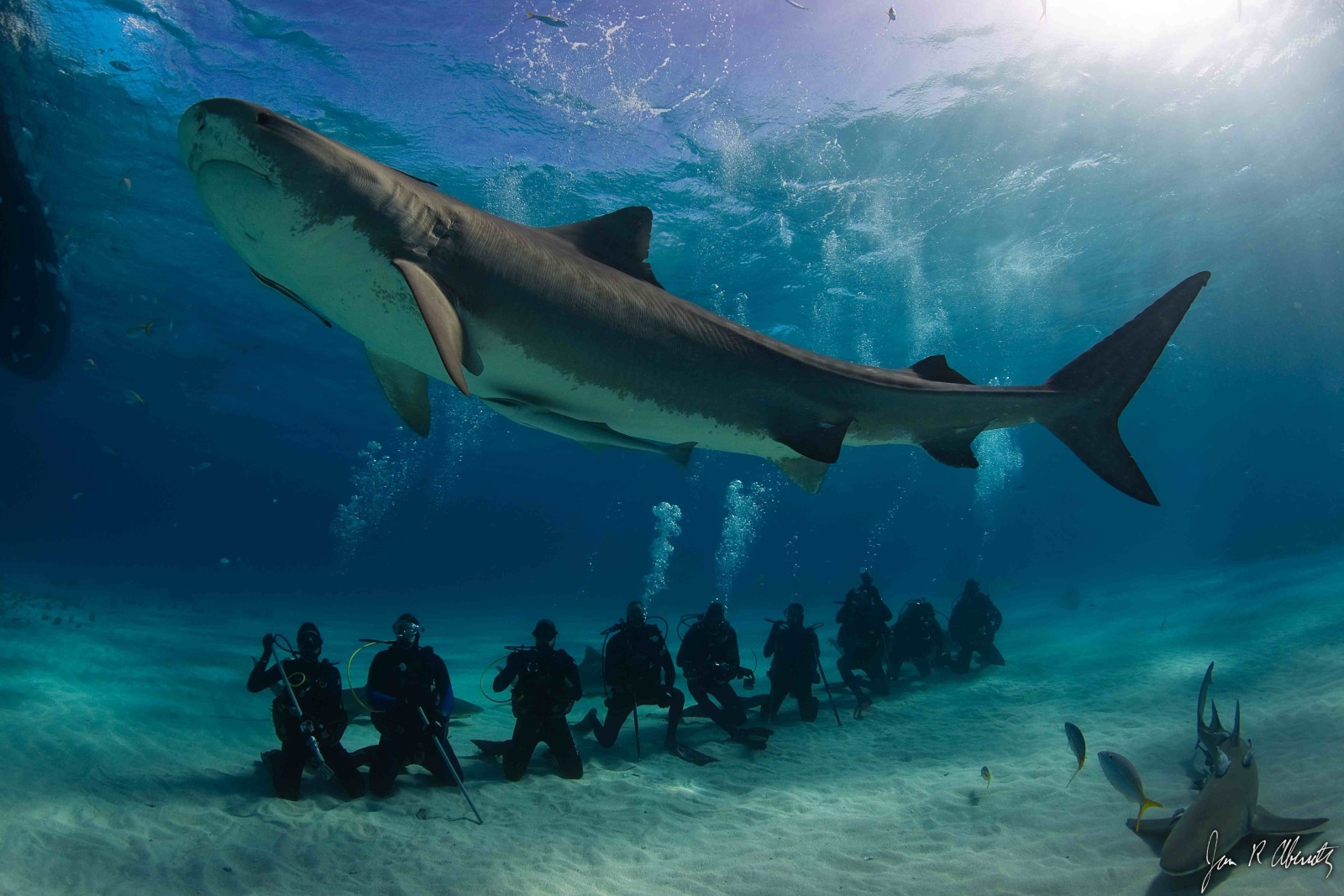 A new satellite tracking study suggests that when scuba diving companies in the Caribbean feed tiger sharks to attract them to dive sites it does not radically alter their behaviour.
A new satellite tracking study suggests that when scuba diving companies in the Caribbean feed tiger sharks to attract them to dive sites it does not radically alter their behaviour.
The spectacle of seeing sharks underwater is becoming a major draw for scuba divers - studies have shown the huge revenues possible from shark ecotourism compared to killing sharks for their fins. But a major criticism of the booming shark dive industry is the many outfits that feed sharks to attract them predictably to dive sites. But what impact does this actually have on their behaviour and ecology?
For the first time, satellite tags have been used help answer that question. Neil Hammerschlag from the University of Miami, led a team of shark taggers in Florida - where shark feeding is illegal - and in the Bahamas, where tiger sharks are regularly fed.
11 tiger sharks were tagged in Florida and 14 in the Bahamas, and they were tracked for between 26 and 297 days.
The team expected that compared to Florida, the sharks in the Bahamas would swim around a smaller area, concentrated at the feeding sites. But as the satellite tracking data came in, they got a big surprise.
Not only did they find no evidence that the sharks getting a free-feed were swimming over a smaller area - the Bahamas sharks had huge home ranges almost five times larger than the Florida sharks - but the team also uncovered their previously unknown long-distance migrations of up to 3500 km into the open Atlantic. The tiger sharks seem to be following the Gulf Stream into food-rich areas that concentrate their prey.
Based on their findings, Hammerschlag and his team recommend that shark diving should not be dismissed out of hand, given the potential benefits that come from an increased awareness of sharks.
Find out more:
Watch
Neil Hammerschlag talking about this new studies.
R.J. Dunlap Marine Conservation Program
Hammerschlag et al (2012). Don't bite the hand that feeds: assessing ecological impacts of provisioning ecotourism on an apex marine predator. Functional Ecology.
Open Access paper










Comments
Add a comment